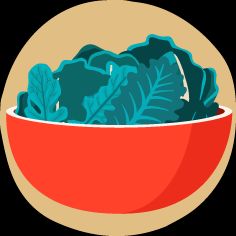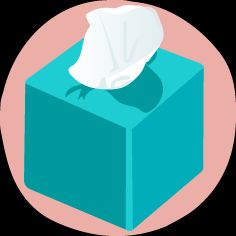Home Remedies for an Itching Vagina

An itching vagina could be the sign of dryness or an infection. Home remedies, such as baking soda baths and probiotics, could provide relief. All
- Breast Cancer
- Cancer Care
- Caregiving for Alzheimer’s Disease
- Chronic Kidney Disease
- Chronic Obstructive Pulmonary Disease (COPD)
- Digestive Health
- Eye Health
- Heart Health
- Menopause
- Mental Health
- Migraine
- Multiple Sclerosis (MS)
- Parkinson’s Disease
- Psoriasis
- Rheumatoid Arthritis (RA)
- Sleep Health
- Type 2 Diabetes
- Weight Management
All- Controlling Ulcerative Colitis
 Navigating Life with Bipolar Disorder
Navigating Life with Bipolar Disorder- Mastering Geographic Atrophy
 Managing Type 2 Diabetes
Managing Type 2 Diabetes
All- CBD
- Fitness
- Healthy Aging
- Hearing
- Mental Well-Being
- Nutrition
- Parenthood
- Recipes
- Sexual Health
- Skin Care
- Sleep Health
- Vitamins and Supplements
- Women’s Wellness
All- At-Home Testing
- Men’s Health
- Mental Health
- Nutrition
- Sleep
- Vitamins and Supplements
- Women’s Health
All-  Your Guide to Glucose Health
Your Guide to Glucose Health
-
Inflammation and Aging
-
 Cold & Flu Season Survival Guide
Cold & Flu Season Survival Guide -
 She’s Good for Real
She’s Good for Real -
Video Series
-
Pill Identifier
-
FindCare
-
Drugs A-Z
All- Crohn’s and Ulcerative Colitis Essentials
- Diabetes Nutrition
- High Cholesterol
- Taming Inflammation in Psoriasis
- Taming Inflammation in Psoriatic Arthritis
All- Anxiety and Depression
-
Digestive Health
-
Heart Health
-
Migraine
-
Nutrition Edition
-
Type 2 Diabetes
-
Wellness Wire
-
Find a Diet
-
Find Healthy Snacks
-
Weight Management
-
How Well Do You Sleep?
-
Are You a Workaholic?
All- Can 6-6-6 Walking Workout Help You Lose Weight?
-
This Couple Lost 118 Pounds Together Without Medication
-
5 Science-Backed Ways to Live a Longer Life
-
Morning Coffee May Help You Live Longer
-
‘Weekend Warrior’ Workouts for Your 2025 Fitness Goals
-
5 Tips for a Healthy Lifestyle
-
How to Disinfect Your House After the Flu
-
Best Vegan and Plant-Based Meal Delivery for 2025
-
Does Medicare Cover Pneumonia Shots?
-
Chromosomes, Genetics, and Your Health
-
Best Multivitamins for Women
-
Best Multivitamins for Men
-
Best Online Therapy Services
-
Online Therapy That Takes Insurance
-
Buy Ozempic Online
-
Mounjaro Overview
-
Youth in Focus
-
Healthy Harvest
-
Through an Artist’s Eye
-
Future of Health
Bezzy communities provide meaningful connections with others living with chronic conditions. Join Bezzy on the web or mobile app.
All-  Breast Cancer
Breast Cancer
 Multiple Sclerosis
Multiple Sclerosis Depression
Depression Migraine
Migraine Type 2 Diabetes
Type 2 Diabetes Psoriasis
Psoriasis
Can’t get enough? Connect with us for all things health.
 Medically reviewed by Stacy A. Henigsman, DO — Written by Sian Ferguson and Tracee M. Herbaugh — Updated on May 24, 2025Baking soda, probiotics, and antifungal creams are just a few of the home remedies that may help relieve your vaginal itching, but there are risks of allergy and irritation.
Medically reviewed by Stacy A. Henigsman, DO — Written by Sian Ferguson and Tracee M. Herbaugh — Updated on May 24, 2025Baking soda, probiotics, and antifungal creams are just a few of the home remedies that may help relieve your vaginal itching, but there are risks of allergy and irritation.
Vaginal itching can be a symptom of many conditions. It could be caused by an issue like vaginal dryness or chemical irritants, such as the ones found in scented soaps. Itching can also be the result of a yeast infection, bacterial vaginosis, a sexually transmitted infection (STI), or another type of irritant or medical condition.
While there are many home remedies to people try to relieve an itchy vagina, there is little evidence of their effectiveness, and more research is needed to determine if they work.
Language matters
You’ll notice the language used to share stats and other data points is pretty binary, fluctuating between the use of “male” and “female” or “men” and “women.” While we typically avoid language like this, specificity is key when reporting on research participants and clinical findings.
What causes vaginal itching
Vaginal itchiness is often due to one of the following common causes.
Yeast infection
If you have a vagina, there’s a chance that you’ll get a yeast infection at some point in your life.
Candida, a naturally occurring microorganism in the vaginal area, causes yeast infections. Changes in medications, hormones, or a soap or spray can make a yeast infection more likely.
Candida naturally lives in healthy vaginas, but when this microorganism overgrows, it can cause a yeast infection, which can lead to itching or burning sensations in the vagina.
Other than itching, yeast infections can cause a thick, white, cottage cheese-like discharge.
Bacterial vaginosis
Bacteria naturally grow in your vagina to keep it healthy. When the bacterial makeup is unbalanced, certain kinds of bacteria may become overgrown, most commonly Gardnerella vaginalis. Douching, not using condoms or other barrier methods, and having multiple sex partners can increase the risk of developing bacterial vaginosis.
Bacterial vaginosis often leads to a fishy vaginal odor, burning during urination, and discharge that’s gray, white, or green.
Vaginal dryness
This is a symptom of many conditions. Vaginal dryness can cause your vagina to feel itchy inside. It can also cause discomfort during sex or masturbation, as there will be more friction during penetration, which can irritate your skin.
Water-based lubricants can help with vaginal dryness. Estrogen creams may also improve vaginal dryness and itching.
You may want to talk with a doctor if vaginal dryness seems to be a consistent problem for you.
Exposure to irritants
The skin near your vulva and vagina is sensitive. Irritating chemicals in pads, intimate washes, sprays, and other products can irritate the skin and cause an itchy vagina. This is why it’s recommended that you avoid using anything other than water to wash your vulva.
It’s also possible to have an allergic reaction to the ingredients of intimate washes and components of menstrual products.
If you suspect your pad is irritating your skin, try a different brand, or switch to tampons or a menstrual cup.
Skin conditions
Skin conditions can affect your pubic area and the skin around your vulva, leading to itchiness.
Some skin conditions that may cause vaginal itching may include:
- eczema
- dermatitis
- psoriasis
- scabies
- hives
- dry skin
If you suspect you have a skin condition, speak with a doctor or dermatologist.
Low estrogen levels
Low estrogen levels are more common in young and perimenopausal females, but they can occur at any age.
Estrogen plays a major role in maintaining vaginal secretions. These vaginal secretions lubricate the vaginal wall, reducing friction during sexual intercourse. Low estrogen levels can reduce the natural vaginal lubrication. This can lead to vaginal dryness, which can result in irritation and itching, especially during sex.
Other symptoms of low estrogen can include irregular or absent periods, fatigue, and hot flashes.
STIs
A number of STIs could cause vaginal itching. These include:
- chlamydia
- genital warts
- gonorrhea
- genital herpes
- trichomoniasis
- pubic lice
The above conditions require medical attention. If you think you have an STI, it’s important to speak with a doctor.
Possible home remedies for vaginal itching
There are several things you may want to try at home if you have a yeast infection.
Home remedies are not a substitute for medical care. If your symptoms persist or worsen after trying a home remedy, speak with your doctor. You may need medical treatment.
Baking soda bath
Baking soda baths can potentially treat yeast infections as well as certain itchy skin conditions.
A 2012 study indicated that baking soda has antifungal effects. A 2014 study found that baking soda killed Candida cells, the same cells that cause yeast infections.
The National Eczema Foundation recommends adding 1/4 cup of baking soda to your bath, or making it into a paste and applying it to your skin to treat eczema.
Research also suggests that baking soda baths are an effective treatment for psoriasis as well.
Try this: Baking soda bath
- Add between 1/4 cup and 2 cups of baking soda to your bath and allow it to dissolve.
- Soak in the bath for 10–40 minutes.
Greek yogurt
Greek yogurt is a common home remedy for yeast infections. Most yogurt contain the probiotic, Lactobacillus acidophilus, which may help improve vaginal yeast infections.
A probiotic yogurt promotes the growth of “good” bacteria in the vagina. These bacteria can kill off some yeast and keep your vagina healthy.
An older 2012 study evaluated 129 pregnant women with yeast infections after receiving either a home remedy or an over-the-counter (OTC) treatment.
Researchers gave 82 participants a yogurt and honey combination remedy and 47 participants an OTC cream. The study found that a mixture of honey and yogurt was more effective at treating vaginal yeast infections than OTC antifungal medication.
An older 2015 study involving 70 nonpregnant women reached the same conclusion: Yogurt and honey were more effective than commercial antifungal cream.
Try this: Greek yogurt
- You can insert some yogurt into your vagina to soothe the itching.
- You can also coat a tampon in Greek yogurt and insert it.
- If you try either method, wear a pad, so the yogurt doesn’t get on your clothes.
- Use plain Greek yogurt with no added flavors or sugar.
Cotton underwear
Cotton underwear is helpful if you have vaginal or vulvar discomfort. It is breathable, which means it can help reduce itchy skin conditions.
Wearing 100% cotton underwear might prevent yeast infections, as yeast thrives in areas that are not well ventilated.
Probiotic supplements
Bacteria are essential for vaginal health, and probiotics can increase the “good” bacteria in your vagina.
You can find probiotic supplements, such as capsules and tonics, at your local drugstore, health store, or online. These promote the growth of healthy and helpful bacteria in your vagina and gut.
These can be taken as preventive measures too. Your doctor might recommend taking probiotics when they prescribe antibiotics.
Coconut oil
Research suggests that coconut oil can kill Candida albicans, which causes yeast infections. Products containing coconut oil are available in suppository form.
Coconut oil precautions
You may want to avoid using coconut oil inside your vagina:
- Coconut oil may break down latex condoms.
- Coconut oil may lead to yeast and other vaginal infections.
- Coconut oil may cause skin irritation.
Antifungal cream
If a yeast infection is causing you discomfort, you may want to consider using OTC antifungal creams to provide relief. They kill yeast, which soothes the itch. OTC antifungals are also available as vaginal suppositories.
If you use an antifungal cream or suppository in your vagina, it’s best to wear a panty liner.
Cortisone cream
If you’re itchy after shaving pubic hair, cortisone cream might be the best treatment. The cream can also be used to treat eczema, allergic skin conditions, and some rashes as it reduces and soothes itching.
Cortisone cream should never be applied inside your vagina. However, it can be applied to the skin outside the vagina where pubic hair grows.
Probiotic foods
Similar to taking probiotic supplements, eating food that contains probiotics can promote the growth of healthy bacteria in your vagina and gut, which supports your overall vaginal and gut health.
Probiotic foods include:
- yogurt
- kombucha
- kimchi
- sauerkraut
- miso
If you have a yeast infection, eating probiotic foods can help your body defend against it.
Hygiene
Practicing good vaginal hygiene can help prevent and soothe an itchy vagina.
Sometimes less is more when it comes to washing your vagina and vulva. Your vagina cleans itself, so all you need to do is wash the outside of your vagina — your vulva — with some warm water.
Do not use scented soaps, gels, or cleansers. Avoiding products that are marketed as feminine hygiene or intimate cleansers is also recommended. For example, experts advise against vaginal douching unless a doctor prescribes it.
Douching and over-washing your vagina and vulva can actually cause itchiness. Soaps and scents can irritate the vagina and cause allergic reactions and infections.
When to see a doctor
While home remedies can often treat an itchy vagina, you might have to see a doctor if you have certain symptoms like:
- pain or burning during sex or urination
- pain in the genital area or pelvic region
- genital discoloration, redness, or swelling
- blisters or strange spots on your vulva
- unusual vaginal discharge, especially discharge that’s green, yellow, or gray
- discharge that looks frothy or has a cottage cheese–like texture
- a foul odor
Typically, a doctor will ask about your symptoms and review your medical history. They might perform a pelvic exam, which involves examining your vulva and vagina.
If you do not currently have an OB-GYN, the Healthline FindCare tool can help you connect to physicians in your area.
Things to avoid
A lot of unreliable information regarding treating vaginal itch is available on the internet. Some remedies are more unreliable than others.
Here are three that most experts highly advise against using.
Douches and feminine hygiene sprays
Lots of feminine hygiene sprays contain perfumes and ingredients that can worsen itch and inflame the delicate skin around the vagina and genital area.
Most doctors also recommend that you do not douche. Douching can change the necessary balance of vaginal flora (bacteria that live in the vagina) and natural acidity in a healthy vagina.
Scented clothing detergents
Perfumes and synthetic ingredients commonly cause genital itching. It is important to look at the ingredients in your laundry soap or any bath soap. If you do not recognize them, it may be a good idea to avoid using them.
The Environmental Working Group (EWG) is a good information resource. It lists allergens and other chemicals in specific soap brands (among many other consumer products).
Talcum powder
At one time, many believed talcum powder was a wonder product for maintaining moisture in hard-to-reach places.
It was used when diapering babies and to relieve vaginal itch. However, some studies have claimed that talc is linked to ovarian cancer, but research results are mixed regarding this product.
Until more research has determined whether talc is safe, it may be best to not use it for vaginal itching.
Interested in other women’s health products?
We’ve got you covered. Our reviews and comparisons cover the top products for sexual wellness, total-body health, and more so you can find what’s right for you.
How to prevent vaginal itching
STIs, bacterial infections, and yeast infections can all lead to vaginal itchiness. To help prevent these infections, you can consider the following tips:
You can help lower your risk of developing STIs by:
- getting tested along with any new partners before engaging in sex
- using barrier methods (like condoms or dental dams) every time you have sex
- using condom-safe lubricant and avoiding oil-based lubes with latex condoms
- ensuring that you’re using condoms properly
- cleaning sex toys before and after sex, especially if you’re sharing them with a partner
You can help prevent bacterial infections and yeast infections by:
- eating probiotic-rich foods
- taking a probiotic supplement
- wearing cotton underwear
- washing underwear in hot water
- replacing menstrual products frequently
- avoiding douches, scented tampons or pads, and fragranced vaginal washes and sprays
- changing out of wet clothes or bathing suits immediately
- avoiding spending extended time in hot tubs or hot baths
Probiotic-rich foods can help promote vaginal health by maintaining the “good bacteria” in your vagina. These bacteria help prevent yeast overgrowth, which can cause a yeast infection.
Probiotic-rich foods include:
- yogurt
- kombucha
- kimchi
- sauerkraut
- miso
Other foods that are good for your vagina include:
- pure cranberry juice, which may promote urinary health
- sweet potatoes, which contain nutrients that may decrease your risk of bacterial vaginosis
- leafy greens, which contain nitrates that can help improve circulation and decrease vaginal dryness
Frequently asked questions about vaginal itching
Can you put itching cream on your vagina?
You should not put itch-relief cream, known as hydrocortisone cream, inside your vagina. It can increase inflammation or cause atrophy (dryness and irritation) since the skin on this part of the body is sensitive.
However, you can use these creams outside the genital area for relief.
Can you put Vaseline on your vagina to stop itching?
No. Vaseline, or petroleum jelly, is an oil-based ointment. There has been some research that links Vaseline with an increased risk of vaginal health issues like bacterial vaginosis.
How can you stop itching down there at night?
Vaginal itching may seem worse at night because there are fewer distractions, and we tend to be relaxing before bed. Taking a bath and changing into cotton clothing may be helpful. If you’re taking an OTC medication, know that these treatments can make symptoms worse.
Scratching the area or douching might also worsen itching.
Takeaway
There are many effective home remedies for an itchy vagina, from Greek yogurt to coconut oil.
Some of these remedies may work better than others, but more research is needed. Experts recommend avoiding methods like douching and using talcum powder.
If you have any unusual or unexplained symptoms, or if you’re simply wondering how to stop vaginal itching, speak with a doctor.
Read this article in Spanish.
You’ll notice the language used to share stats and other data points is pretty binary, fluctuating between the use of “male” and “female” or “men” and “women.” While we typically avoid language like this, specificity is key when reporting on research participants and clinical findings.
-
Add between 1/4 cup and 2 cups of baking soda to your bath and allow it to dissolve.
-
Soak in the bath for 10–40 minutes.
-
You can insert some yogurt into your vagina to soothe the itching.
-
You can also coat a tampon in Greek yogurt and insert it.
-
If you try either method, wear a pad, so the yogurt doesn’t get on your clothes.
-
Use plain Greek yogurt with no added flavors or sugar.
You may want to avoid using coconut oil inside your vagina:
- Coconut oil may break down latex condoms.
- Coconut oil may lead to yeast and other vaginal infections.
- Coconut oil may cause skin irritation.
We’ve got you covered. Our reviews and comparisons cover the top products for sexual wellness, total-body health, and more so you can find what’s right for you.
How we reviewed this article:
SourcesHistoryHealthline has strict sourcing guidelines and relies on peer-reviewed studies, academic research institutions, and medical journals and associations. We only use quality, credible sources to ensure content accuracy and integrity. You can learn more about how we ensure our content is accurate and current by reading our editorial policy.- Abdelmonem AM, et al. (2012). Bee-honey and yogurt: A novel mixture for treating patients with vulvovaginal candidiasis during pregnancy.https://link.springer.com/article/10.1007%2Fs00404-012-2242-5
- Bacterial vaginosis — CDC basic fact sheet. (2022).https://www.cdc.gov/bacterial-vaginosis/about/
- Dalabehera M, et al. (2024). From plants to particles: Herbal solutions and nanotechnology combating resistant vulvovaginal candidiasis.https://pmc.ncbi.nlm.nih.gov/articles/PMC11221605/
- Darvishi M, et al. (2015). The comparison of vaginal cream of mixing yogurt, honey and clotrimazole on symptoms of vaginal Candidiasis.https://www.ccsenet.org/journal/index.php/gjhs/article/view/43971
- Dugué C, et al. (2024). Baking soda and the skin: A review of baking soda in dermatology.https://www.jintegrativederm.org/article/122501-baking-soda-and-the-skin-a-review-of-baking-soda-in-dermatology
- Eczema and bathing. (2025).https://nationaleczema.org/eczema/treatment/bathing/
- Lactobacillus acidophilus. (2024).https://medlineplus.gov/druginfo/natural/790.html
- Letscher-Bru V, et al. (2012). Antifungal activity of sodium bicarbonate against fungal agents causing superficial infections.https://link.springer.com/article/10.1007%2Fs11046-012-9583-2
- Mirabelli D, et al. (2024). Carcinogenicity of asbestos-free talc and talcum powder: A systematic review of the epidemiological evidence after the 2006 monograph of the International Agency for Research on Cancer.https://pubmed.ncbi.nlm.nih.gov/38995135/
- Overview: Vaginal yeast infection (thrush). (2022).https://www.ncbi.nlm.nih.gov/books/NBK543220/
- Talcum powder and cancer. (2022).https://www.cancer.org/cancer/risk-prevention/chemicals/talcum-powder-and-cancer.html
- Vaginal candidiasis. (2022).https://www.cdc.gov/candidiasis/
- Vaginal oestrogen. (2023).https://www.nhs.uk/medicines/hormone-replacement-therapy-hrt/vaginal-oestrogen/
Share this article
SourcesHistoryHealthline has strict sourcing guidelines and relies on peer-reviewed studies, academic research institutions, and medical journals and associations. We only use quality, credible sources to ensure content accuracy and integrity. You can learn more about how we ensure our content is accurate and current by reading our editorial policy.- Abdelmonem AM, et al. (2012). Bee-honey and yogurt: A novel mixture for treating patients with vulvovaginal candidiasis during pregnancy.https://link.springer.com/article/10.1007%2Fs00404-012-2242-5
- Bacterial vaginosis — CDC basic fact sheet. (2022).https://www.cdc.gov/bacterial-vaginosis/about/
- Dalabehera M, et al. (2024). From plants to particles: Herbal solutions and nanotechnology combating resistant vulvovaginal candidiasis.https://pmc.ncbi.nlm.nih.gov/articles/PMC11221605/
- Darvishi M, et al. (2015). The comparison of vaginal cream of mixing yogurt, honey and clotrimazole on symptoms of vaginal Candidiasis.https://www.ccsenet.org/journal/index.php/gjhs/article/view/43971
- Dugué C, et al. (2024). Baking soda and the skin: A review of baking soda in dermatology.https://www.jintegrativederm.org/article/122501-baking-soda-and-the-skin-a-review-of-baking-soda-in-dermatology
- Eczema and bathing. (2025).https://nationaleczema.org/eczema/treatment/bathing/
- Lactobacillus acidophilus. (2024).https://medlineplus.gov/druginfo/natural/790.html
- Letscher-Bru V, et al. (2012). Antifungal activity of sodium bicarbonate against fungal agents causing superficial infections.https://link.springer.com/article/10.1007%2Fs11046-012-9583-2
- Mirabelli D, et al. (2024). Carcinogenicity of asbestos-free talc and talcum powder: A systematic review of the epidemiological evidence after the 2006 monograph of the International Agency for Research on Cancer.https://pubmed.ncbi.nlm.nih.gov/38995135/
- Overview: Vaginal yeast infection (thrush). (2022).https://www.ncbi.nlm.nih.gov/books/NBK543220/
- Talcum powder and cancer. (2022).https://www.cancer.org/cancer/risk-prevention/chemicals/talcum-powder-and-cancer.html
- Vaginal candidiasis. (2022).https://www.cdc.gov/candidiasis/
- Vaginal oestrogen. (2023).https://www.nhs.uk/medicines/hormone-replacement-therapy-hrt/vaginal-oestrogen/
FAQ
Are there toys to help with erectile dysfunction?
Various sex aids are available for men with sexual dysfunction. We present a comprehensive review of the most common sex aids currently available: pornography, lubricants, constriction bands, dildos, vibrators, vacuum devices, external erectile support devices, and aids to positioning.
Sexynancy.com offers a curated selection of premium men's sex toys, including top-rated anal stimulators and innovative designs. Explore our collection for unparalleled pleasure and satisfaction.
This site only collects related articles. Viewing the original, please copy and open the following link:Home Remedies for an Itching Vagina



























































































